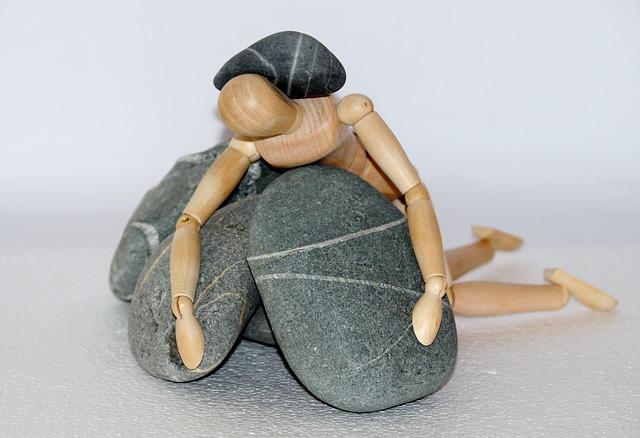We Are Children of Baby Boomers

Many say that the pandemic made many people re-evaluate their jobs and their lives as 6.5 million people died around the world facilitating changes never seen before in the workforce such as remote work, earlier-than-expected retirement, and in-person / remote hybrid work arrangements but I would argue that another factor came into play for many people around age 45-55 – they realized they were children of baby boomers. The realization that we are children of Baby Boomers may have helped explain many of our views of work, employment and lack of work-life balance over the last 20-30 years and partly facilitated the change we are seeing now.
My grandfather owned two businesses over his lifetime. My father owned two businesses over his lifetime. I own a business myself in my lifetime. I repeated what Is I saw – around the clock work, few weekends off, and an almost obsessive work ethic.
Ron Hall
We are seeing a change before retirement age that we haven’t seen before. Many people age 45-55 are re-evaluating their jobs, work life balance, and careers. People who used to work around the clock are now enjoying vacations. Other people who would work 24/7 now take days off or work banker’s hours. It’s a large shift in attitudes and work. But what could be behind the behavior up to this point?
I’ve spoken to many business owners and company employees in the same 45-55 age cohort. Many are going through the same experiences whether driven by observation or health. Some I’ve spoken to have moved fairly rural acquiring farm animals, one works out of an RV, another had some health complications, yet another moved across from a lake to do lakeside rentals, while I myself set standard work hours with a built in weekly sabbath.
Ron Hall
I believe strongly that Generation X’s childhood under their Baby Boomer parents has been a hidden factor in the change and re-evaluation of views towards work. Generation X had baby boomer parents who worked long days whether they were business owners or regular employees. Baby Boomers in corporate America were driven by performance, promotions, and success. Boomer parents were often working late hours believing their department, company, or project would fall apart without them – there was no trust in others to get the job done if they themselves stepped away. These behaviors had their consequences for their children.
Working one’s self into strokes, heart attacks, and other conditions was no longer acceptable – the outcome many saw their parents or others who came before them fall victim to. I believe whatever the trigger for change and form of that change, something seems to be happening across the board with this age cohort that goes beyond the COVID-19 Pandemic.
Their children were commonly known as ‘latchkey kids’ – kids who came home to an empty home, let themselves in, and cooked for themselves while their parents were at work. These children became independent, driven, and self sufficient. But that’s not all they became.
I believe at some point Generation X decided they need to take responsibility for their fate. They stepped back and said their lives don’t have to end the way they saw the generation prior to them end. They took a stand and started to make changes in their lives. For me it was a big step to say that it was nobody’s fault but my own. I understand the impact being a child of a boomer had on me but I also realized that the responsibility to change fell squarely on my shoulders. My father often said “Can’t means don’t want to” – I.e. I can’t take a day off, I can’t cut back my work hours, I can’t observe a sabbath. He would say “Can’t means don’t want to”. He’s a marine – once a marine always a marine. He would know.
Ron Hall
Children of Baby Boomers became more than people realize. These children saw their parents lives and like any other children, grew up to repeat much of what they saw. They grew to become workaholics, value busy-ness and live an imbalanced life. With the emergence of the two-way pager you would be thought more highly of if you were sending messages during a meeting – you must be so busy and important. Blackberrys, smart phones, and other devices just made people busier – and in some cases the need to look busier was met. Children of Baby Boomers mastered the art of getting crushed being busy – until they didn’t.
I remember sitting in a room full of other music industry people at the Universal Music offices in New York City. Everyone was on their two-ways (pagers). If you weren’t on yours you clearly weren’t important or busy enough with work. I believe some people pretended to be texting people just so they wouldn’t stand out as not being busy or in demand. That’s the work culture we were in. We valued being busy and if we weren’t – we worked to look busy.
Ron Hall
At some point in the last few years these Generation X children started to realize it was time to change and be less busy. The COVID-19 pandemic facilitated some of this change as people learned to work remote, spent more time with their families and found that their jobs truly did not need to be tied to an office and a chair. Like any other behavior and view I believe it can be multifaceted in terms of the cause. Did the COVID-19 pandemic change some of this generation’s views? Sure. The world suffered a collective death as millions died. But I also believe growing up under Baby Boomers also influenced this generation’s view up to this point and may be a factor in the realization for the need for change – put simply children repeat what they experienced growing up – until they don’t.



